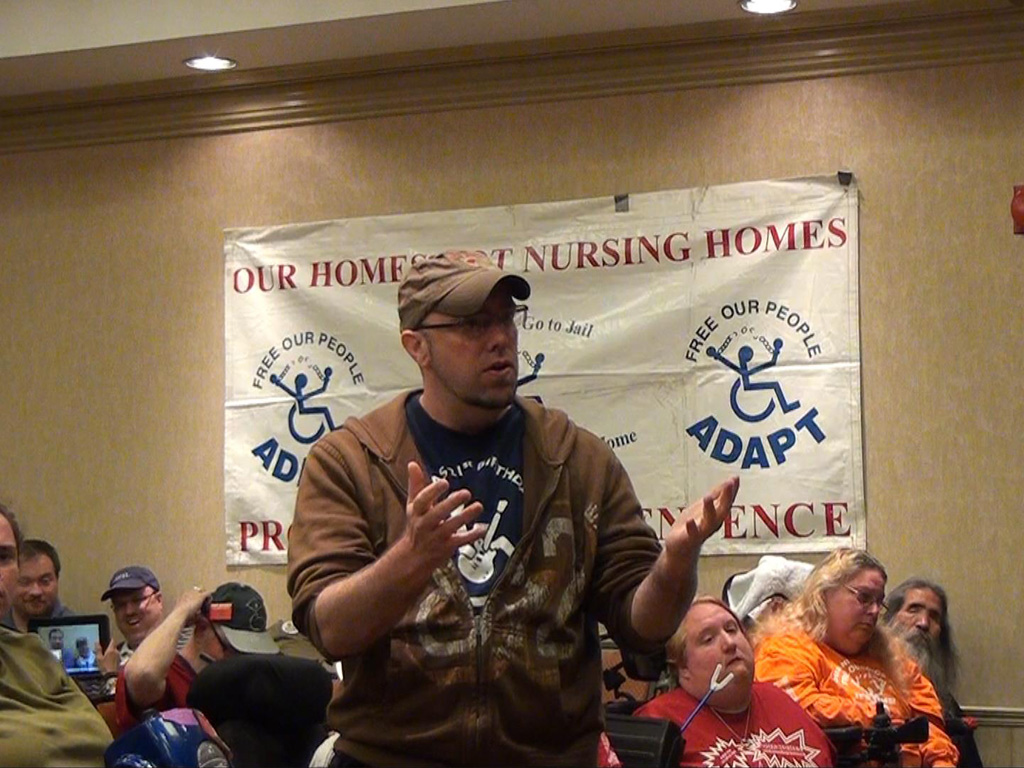
Dean DeRusso
I'm Advocate
About
Seeking a Christian Job focusing on a Ministry in American Sign Language (ASL) related and/or as a software/hardware Technician. My name is Dean. I was once a Computer Consultant. I did many big innovation projects. I have helped develop softwares, web pages and more. Later in my life. I have became an Advocate. I was the Deaf Systems Advocate who fought for the Deaf community to remove the barriers they were facing. To a point, I decided to seek what God was doing in my life. I have stepped down to receive my Masters of Divinity with concentrations in Theology and Social Jusice. I currently am looking to see what God has planned for me next in my life. If you need help or something, please feel free to ask. I am a man of many tallents.

Evangelist & ASL Professor & Biblical Counselor & Technician.
I am currently available to be your Advocate, Biblical Justice, Biblical Counselor, Evangelism, Video Blogging, Programmer. Below are some basic information about me.
- Birthday: September 9
- City: Rochester, NY, USA
- Website: www.ferretrex.com
- Freelance: Available
- Skills Teacher, Linguistics, Evangelist, Developer
- Degree: Master
- Phone: Please Email.
- Email: Please, use Contact Form
Thank you for checking me out. Looking forward to seeing what God would do for all of us.
Resume
Seeking a one of the following opporunities as an American Sign Language (ASL) teacher; as a Christian Evangelist to help others seek a better life; and/or as a software/hardware Technician.
Sumary
Dean DeRusso
Innoventor, Team Player, Hard Worker.
- PO Box 24237, Rochester, NY 14624
- For Phone number, please use Contact Form
- For Email, please use Contact Form
Education
Master of Divninity & with Concentration in Theology and Social Justice
2008 - 2012
Northeastern Seminary, Rochester, NY
Focused on better understanding Biblical history, theology and Social Justice. Even included studies about Deaf Culture in biblical viewpoints.
Bachelor of Science & Information Technology
1997 - 1999
Rochester Institute of Technology, Rochester, NY
Learned complex computing systems and how to become well-versed in their management with innovation ideas.
American Academy of Sciences (AAS) & Computer Engineering Technology
1995 - 1997
Rochester Institute of Technology, Rochester, NY
Learned complex computing systems and how to become well-versed in their management with innovation ideas.
Professional Experience
American Sign Language Adjunct Professor
01/22 - Present, 01/13-12/14
Experion, Canandaigua, NY
- Developing Asychronous Online Courses
- Video Recording and Creating PowerPoint Presentations
- Supervise and Teaching
Deaf Biblical Counseling, Inc.
12/20-Present
Works Remotely, Danville, KY
- Developed numerous programs (Video Blogs, brochures, presentations, and advertisements).
- Teach Bible Studies Related to Topics.
- Conference Presentator
- Developed Website, Donations and more
Grace Deaf Presbyterian Church (GDPC)
12/20-Present
Remote Member, Danville, KY
- Teaching online Bible Studies and Assist on Worship Services through Zoom.
- Creating images, flyers, and videos for the church.
FerretRex Consulting
12/03-Present
Self Owned Business, Rochester, NY
- Developing Databases (Oracle, MS SQL, MySQL), Software (Visual Basics, C++, C#, PHP, Javascripting, Java), Upgrading Technologies, .
- Home improvement and repairing.
- Personal Video Blogging, ASL Preformances, and Socials
- Deaf Interpreter and studied for Certification
Home Depot
3/18-12/21
Remote Member, Rochester, NY
- Working in Hardware and Delivery department.
- Help customers and stocking of wholesales products.
Regional Center of Independent Living (RCIL)
10/06-1/15/15
Deaf Systems Advocate, Rochester, NY
- Advocates for deaf and disability become included, integrated, and independent in the community.
- Focus on Policy changing from Federal level to local level.
- Handled cases and events mainly focused on system changes that were barriers of language rights toward the Deaf, Hard of Hearing and Deaf-Blind individuals.
- Case includes FMSCA Hearing Waiver, Open Caption Movies, Including ASL in LOTE Programs, Sitting on Boards, Discussing policies with legatives and more...
Northeaster Deaf Recreation, Inc. (DeafRec)
1/97-12/06
President & Founder, Rochester, NY
- Established community events for Deaf and Hearing.
- Focus on meet up socials in community to make them more deaf friendly.
- Hosted Deaf Awareness, Community Events (Pizza, Swing, Salsa, Country Line, Ice Cream, Camping and more).
Portfolio
Below, I will share some memories from the past accomplishments.
- All
- Advocacy
- Evangelism
- Hobbies
- Etc...
Services
Please email and ask for services. Currently, some are volunteering. Others are based on donations.
Bible Counseling
I am a strong supporter of Deaf Biblical Counseling (DBC) service and training. I find it very helpful for many Deaf, Hearing and Hard of hearing individuals who are seeking healing in Christ. It is also blessing to see God's work and healing for those struggling with marriage, singleness, anxiety, mental health and more...
Evangelist
I do provide answers and questions related to the Bible. And, I do offer Bible Studies in person and on Zoom. But if someone has a questions about the Bible, they may reach out to ask questions. I would be happy to answer. If someone needs prayers, I will be happy to pray for them.
Entertainer
I do have ASL Stories, ABC Stories, Deaf Humors and Deaf Jokes that I enjoy sharing. If you would like to reach out and ask for a preformer. I would be happy to arrange that.
Public Speaker
I enjoy sharing my life journey as a Post-Linguistic Deaf person. I also enjoy sharing Deaf Culture with others.
Developer & Designer
Often people reach out asking for advices of how to improve their technology needs. Sometimes, home improvements advices too. I do offer ideas and solutions as a Computer consultant or as a handy man.
Community Services
I love Deaf and hearing socials. If anyone wants advices on how to create an event, I would be happy to help out. I spend years hosting a widerange of community events. I always was well known for helping improve the accessabilities for Deaf, Hard of Hearing and DeafBlind.
Testimonials
I didn't collect any testimonies from others. Maybe in the future, if you would like to add a comment and photo. Please feel free to contact me with your quote and photo.
















